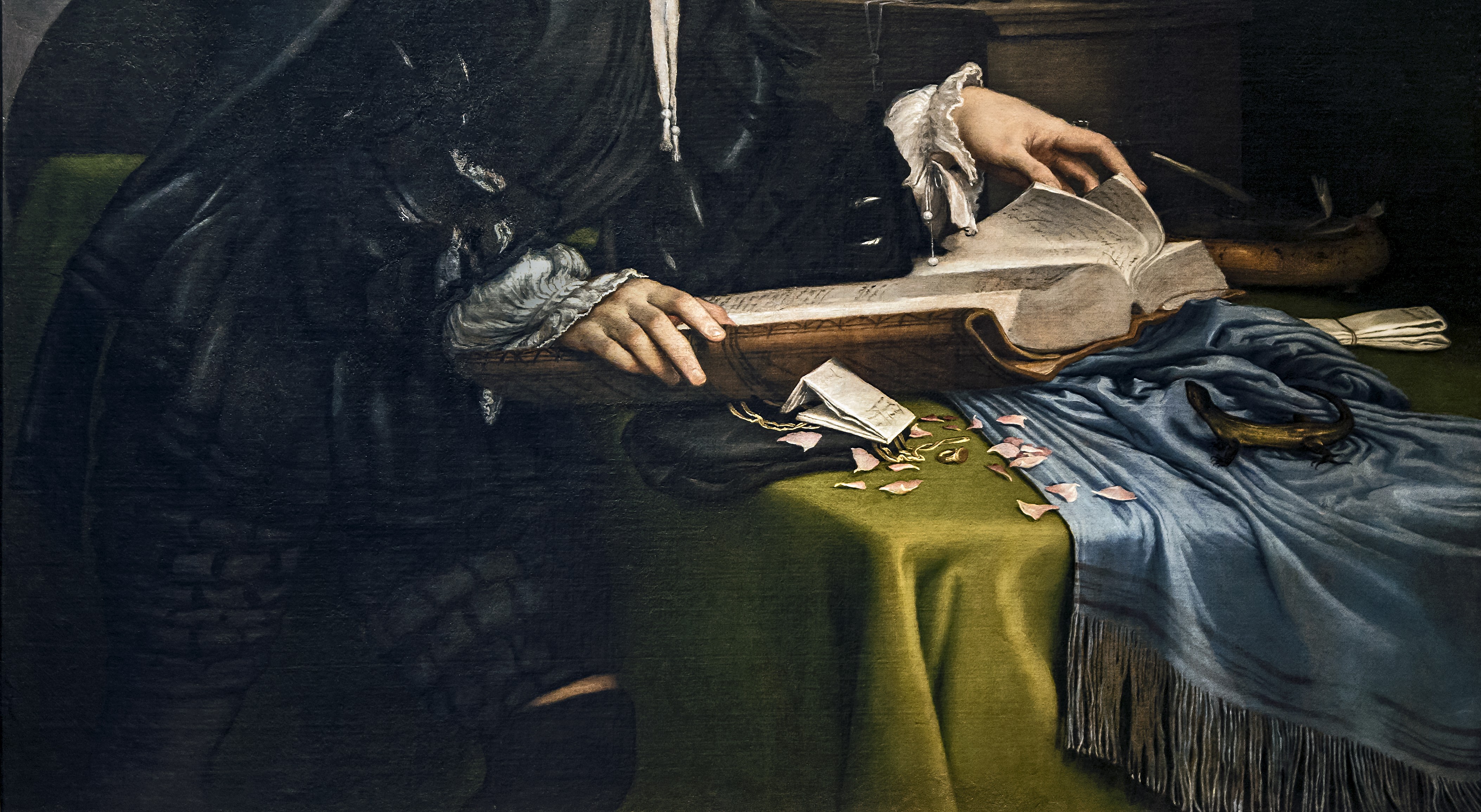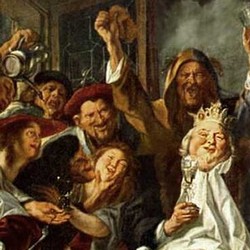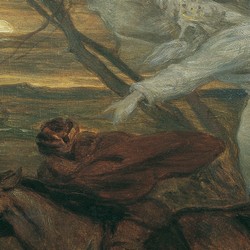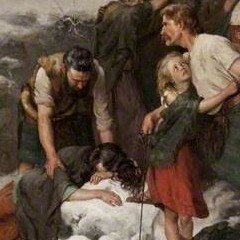If you're a Wikipedia user, I'm sure many of you are, the title of this article has caught your attention. Robert Garrigós i Castro, the Promoter of Viquiprojecte Lieder and Wikiproject Lieder, tell us about these two recent initiatives. He will explain them to us in more detail, but I'll try to shortly summarize them: the Viquiproject Lieder aspires to create the Catalan encyclopedia of the lieder (it's therefore addressed to Catalan Lied lovers), while the Wikiproject Lieder sets up a database that will be used by all the languages of the Wikipedia (so it's addressed to Lied lovers around the world). Robert has been working for a few years with the idea of gathering the existing translations of lieder (songs, in general) into Catalan, as many years as we have known each other. The project has been growing, and I am delighted that he presents it on Liederabend. Thank you, Robert!
The Lied that will illustrate his article is Beethoven's Adelaide, which Robert presents as an example; this time the performers are Jonas Kaufmann and Helmut Deutsch.

Wikipedia is an internet portal well known to any web user. Its publishing side is also well known, that is, the ability of any user to edit its content. However, there are fewer users who dare. Today we want to present you a wikipedian project, of interest to Lieder lovers, which, in addition to promoting the spread of Lied in the Catalan Countries, will allow you to enter the world of editing the Wikipedia. This is the Viquiprojecte Lieder.
According to Wikipedia itself, a wikiproject "is a collection of pages that are dedicated to the organization and coordination of users when it comes to improving articles with a certain point in common." The Viquiprojecte Lieder, therefore, seeks to organize and coordinate the efforts of Lied lovers to collect, classify, organize and, finally, deliver to the world, any information relating to Lieder, both by Catalan composers and from other regions.
Surely, many of the readers of this blog are aware of the Lieder.net () website and the sheer amount of information it contains. And you may be wondering whether it is a good idea or not to start a project as ambitious as the one we are presenting here, having Lieder.net. The answer is simple but not short or easy to explain, but we will try to make it understandable and quick to read.
That's why you need to know, first of all, what Wikipedia is.
Wikipedia "is a free encyclopedia maintained by a non-profit foundation. Its articles have been written collaboratively by users around the world" who believe in free knowledge and its power to transform the world.
Wikipedia is also a multi-language project (currently 314 active languages) with Catalan being the first language in the world, after English, which had its own articles. Wikipedia is a sample of the knowledge of Catalan in the world.
The Viquiprojecte Lieder wants to create the free Catalan encyclopedia of Lieder, providing information on their compositional context, their authors and poems (including their translations) and to spread them, in Catalan, everywhere. On Wikipedia, both in English and in all other languages, there are a multitude of wikiprojects on many different topics, but none on Lieder. This Catalan Wikipedia project on Lieder is also, therefore, unique in the world and a new opportunity to show the world the capacity of the Catalan people.
Wikipedia, however, is much more than a free collaborative encyclopedia. Wikipedia has also been the embryo from which many other collaborative free knowledge portals have been born, such as a dictionary, a book directory, one about news, one about manuals, another about sayings or a species directory. All these projects have in common the fact of being a non-profit collaborative project to share free knowledge in the form of text, with or without the equivalent portal in Catalan.
There is, however, another project, within the Wikipedia family, that is very important for the rest of the projects because it is not a compendium of knowledge in text format but in the form of a database. And we want to tell you about it because we have also created a pioneering Viquiprojecte Lieder on a global scale. This is called Wikiproject Lieder and is part of the wikipedia portal WikiData.
Why is the Wikidata project so important for other wikipedia portals, but also for the world at large? Wikidata is a collaborative free knowledge database. To understand the difference with Wikipedia, let's look at a case study of Beethoven's Lied Adelaide and how both Wikipedia and Wikidata include it in their respective repositories.
The article Adelaide on Wikipedia contains an essay that includes an explanation of how Beethoven composed it. You will also find the poem and its translation into Catalan and some paragraphs that make a brief musical analysis of the Lied and how it was received at the time. All this text is full of very specific data, such as dates, names, tonality, etc., but they are in a format that can only be understood by a human who also knows Catalan. You need to read the text of the article to recognize the data and extract some knowledge.
If we wanted a computer to extract that specific data, it would be quite complicated. Today, we've been able to get machines to read loudly text and even correct grammatical errors or translate it, but not to understand it to extract specific data. That is why the content needs to be structured differently. It is necessary to make a database, to transform the text formatted content of the Wikipedia in a tabulated format, with columns for concepts and rows for values, for example. And that's what Wikidata does.
If we look at the page for the Lied Adelaide on Wikidata we will see that the content has a very different format, similar to a table with rows and columns, where we can read specific data formed by pairs: one element of the pair is a property (date of composition, title, composer...) and the other is the value (1794, Adelaide, Ludwig van Beethoven...). With this format, it is much easier to program a computer to understand its data.
And that's important, for example, for Wikipedia itself. Take a look back at Wikipedia's Adelaide article, and you'll see a table at the beginning of the article on the right side with the specific data we've seen on Wikidata. This is called infotable, it extracts data directly from Wikidata and is a very interesting informative supplement on Wikipedia pages. These infotables can also be found on Wikipedias in languages other than Catalan, although they may not be linked to Wikidata (they are edited manually) because (again) here Catalans have been pioneers in the use of Wikidata for the infotables.
The Viquiprojecte Lieder (), therefore, is a Wikipedia project for all Catalan speakers and lovers of Lieder and the Wikiproject Lieder is a Wikidata project for the systematic cataloguing of Lieder worldwide. We encourage you to visit those projects and actively collaborate.
And as you watch them, we suggest you listen to this magnificent Lied by Beethoven, Adelaide.
Einsam wandelt dein Freund im Frühlingsgarten,
Mild vom lieblichen Zauberlicht umflossen,
Das durch wankende Blütenzweige zittert,
Adelaide!
In der spiegelnden Flut, im Schnee der Alpen,
In des sinkenden Tages Goldgewölken,
Im Gefilde der Sterne strahlt dein Bildnis,
Adelaide!
Abendlüftchen im zarten Laube flüstern,
Silberglöckchen des Mais im Grase säuseln,
Wellen rauschen, und Nachtigallen flöten:
Adelaide.
Einst, o Wunder! entblüht, auf meinem Grabe,
Eine Blume der Asche meines Herzens;
Deutlich schimmert auf jedem Purpurblättchen:
Adelaide.
Alone does your friend wander in the Spring garden,
Mildly encircled by magic light
That quivers through swaying, blossoming boughs,
Adelaide!
In the mirroring stream, in the snow of the Alps,
In the dying day's golden clouds,
In the fields of stars, your image shines,
Adelaide!
Evening breezes whisper in the tender leaves,
Silvery lilies-of-the-valley rustle in the grass,
Waves murmur and nightingales pipe:
Adelaide!
One day, o wonder! upon my grave will bloom
A flower from the ashes of my heart;
And clearly on every purple leaf will gleam:
Adelaide!
(translation by Emily Ezust)















